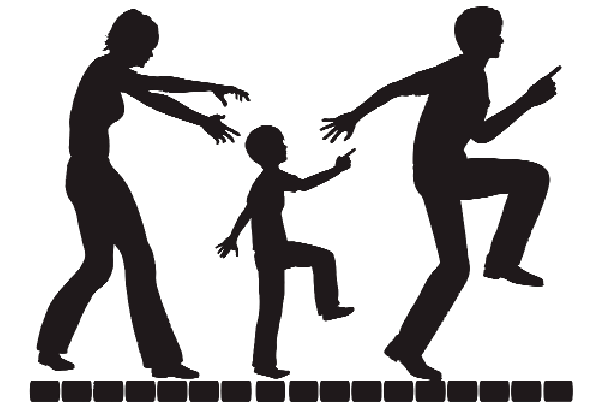Train up a child in the way he should go, and when he is old, he will not depart from it —Proverbs 22:6 (NKJV)
Gone are the days when children were taught to respect all, be patriotic, work hard, participate in communal activities, as well as offer their time, energies, and talents to build their communities. Erstwhile, during school vacations, children actively participated in voluntary activities where they learned volunteerism — service to humanity and learned the tenets of good behaviour.
Parents and the elderly in communities took on the responsibility of ensuring children conform to societal norms by correcting them when they went wrong and/or reporting their deviant behaviours to their parents for further disciplining. The “rod of correction” was effectively used to drive out the folly that lies in the heart of children as indicated in the Holy Scriptures.
These actions were taken regardless of family affiliations with the notion of contributing towards building a good society with good citizens. Laziness was frowned upon, parents avoided over pampering and overindulging their children in superfluities that wasted funds and prevented them from gaining life skills. Children were taught to be content as discontentment could lead to greed, covetousness, and theft.
Modernity
On the contrary, what do we see in our modern world today? Parents are extremely busy working for money. They leave the home very early and usually, return late, leaving the nurturing of their children in the hands of nannies and schoolteachers. Social media is the trending platform where children learn and practise immorality. Children choose celebrities with questionable morals as their mentors, thereby emulating their corrupt behaviours.
Parents who acquired wealth through hard work, dedication, perseverance, and patience tend to indulge their children with the logic that they do not want them to endure hardship like the parents did.
They also condone their bad behaviours with the same notion, consequently breeding corrupt attitudes in children, which includes disrespect for people of all walks of life. Modern-day children treat their house helps, security men manning their house gates, and the poor, among others, as inferior beings who do not deserve to be treated with dignity.
Discipline
In the past, teachers were accorded respect in communities to the extent that parents reported their children to them for correction. Today, teachers are treated with indignity. There have been instances where teachers who dared to employ corporal punishments as a measure of correction had parents go to the schools to abuse them verbally and physically with society looking on.
Interestingly, the same society attributes children’s bad behaviours to the non-performance of the same teachers they prohibit disciplining their children. On the other hand, teachers have also become apathetic, seeking their own good to the neglect of the good of their students.
They often neglect researching new knowledge and novel trends towards the upgrade of their teaching curricula and skills. The teacher’s role of seeing the good in children and helping them grow into productive citizens has been relegated to the background, which needs to be revived. What then must we do to bring to the present the good parental practices of the past, tailor them to address present needs, and start building a better future today?
Parents
Parents must create an atmosphere in their homes where ground rules are set based on globally accepted norms where children learn to respect other people regardless of age, status, ethnicity, stature and gender, among others. Children must be made to learn how to perform basic chores and, in the process, acquire basic life skills required for survival.
Volunteerism and patriotism are virtues that need to be imbued. Having a selfless spirit that seeks the good of all and ensuring that good is pursued always lays the foundation for character development. Parents must research the past, identify the positives of the past, improve upon them, and inculcate them in their children.
Children need to be taught to be content with whatever their parents can afford for them and not envy what their friends’ parents have provided for them. Attention must be paid to ensuring the family income is effectively used to benefit all and not wasted through superfluity.
Sharing and caring for each other in the home produces a cord of love that binds families together. Meeting together as a family to share weekly experiences and lessons learned on a designated day or evening creates an atmosphere of belongingness. Establishing good relationships with children makes correcting them easy; hence, facilitating the inculcation of values such as anti-corruption behaviours in them. In conclusion, charity, they say begins at home. Parents must play their role to ensure the nurturing of good future citizens.
The writer is a lecturer at Ashesi University

